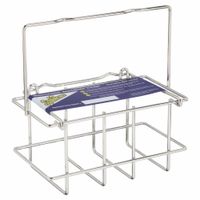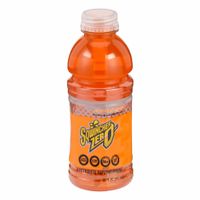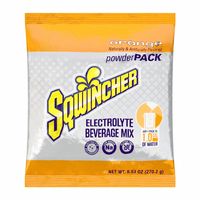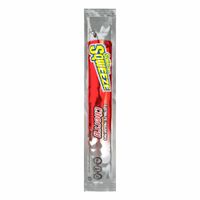Call +(254) 703 030 000 / 751 483 999 / 721 704 777
- Home
- Safety
- Hydration Products
- Sports Drinks Thirst Quenchers
.....Read More
Frequently Asked Questions
What are the benefits of sports drinks during exercise?
Sports drinks offer several benefits during exercise, primarily due to their composition of water, electrolytes, and carbohydrates.
1. **Hydration**: Sports drinks help maintain hydration levels. They contain water, which is essential for replacing fluids lost through sweat, preventing dehydration, and maintaining optimal performance.
2. **Electrolyte Replacement**: During exercise, the body loses electrolytes such as sodium, potassium, and magnesium through sweat. Sports drinks replenish these electrolytes, which are crucial for maintaining fluid balance, nerve function, and muscle contractions.
3. **Energy Supply**: The carbohydrates in sports drinks provide a quick source of energy. They are typically in the form of sugars like glucose and sucrose, which are easily absorbed and utilized by the body to sustain energy levels during prolonged physical activity.
4. **Improved Endurance**: By providing both hydration and energy, sports drinks can enhance endurance. They help delay fatigue, allowing athletes to perform at higher intensities for longer periods.
5. **Enhanced Recovery**: Consuming sports drinks during and after exercise can aid in faster recovery. The carbohydrates help replenish glycogen stores, while electrolytes assist in restoring the body's natural balance, reducing the risk of cramps and muscle soreness.
6. **Palatability**: The flavoring in sports drinks can encourage more frequent drinking, which is beneficial for maintaining hydration, especially during long or intense workouts.
7. **Performance Boost**: For high-intensity or endurance sports, the combination of hydration, electrolytes, and carbohydrates can lead to improved performance outcomes compared to water alone.
In summary, sports drinks are beneficial during exercise for maintaining hydration, replenishing electrolytes, providing energy, and enhancing both performance and recovery.
How do sports drinks compare to water for hydration?
Sports drinks and water both serve to hydrate the body, but they do so in different ways and are suited for different situations.
Water is the most basic and essential form of hydration. It is calorie-free, easily accessible, and sufficient for maintaining hydration in most everyday activities and light exercises. It effectively replenishes fluids lost through sweat and helps regulate body temperature.
Sports drinks, on the other hand, are designed to replace not only fluids but also electrolytes and carbohydrates lost during intense physical activities. They contain sodium, potassium, and other electrolytes that help maintain the body's electrolyte balance, which is crucial during prolonged or high-intensity exercise. The carbohydrates in sports drinks provide a quick source of energy, which can be beneficial during endurance events or prolonged physical exertion.
For moderate activities or short-duration exercises, water is generally adequate for hydration. However, during prolonged, intense activities lasting more than an hour, especially in hot and humid conditions, sports drinks can be more effective. They help prevent dehydration, maintain energy levels, and reduce the risk of electrolyte imbalances.
In summary, while water is sufficient for everyday hydration and light exercise, sports drinks are beneficial for athletes or individuals engaged in prolonged, high-intensity activities. They provide additional electrolytes and energy, which can enhance performance and recovery. However, for those not engaged in intense physical activities, the extra calories and sugars in sports drinks may be unnecessary and could contribute to weight gain if consumed excessively.
What are the key electrolytes found in sports drinks?
The key electrolytes found in sports drinks are sodium, potassium, magnesium, calcium, and chloride.
1. **Sodium**: This is the most abundant electrolyte in sports drinks. It helps maintain fluid balance, supports nerve function, and aids in muscle contraction. Sodium is crucial for replacing the salt lost through sweat during intense physical activity.
2. **Potassium**: Essential for muscle function and nerve signaling, potassium helps prevent muscle cramps and supports cardiovascular health. It works alongside sodium to maintain fluid balance and proper cell function.
3. **Magnesium**: This electrolyte is vital for energy production, muscle contraction, and nerve function. Magnesium also plays a role in maintaining a healthy immune system and bone health.
4. **Calcium**: Known for its role in bone health, calcium is also important for muscle function and nerve transmission. It helps in muscle contraction and relaxation, making it crucial for athletes.
5. **Chloride**: Often paired with sodium, chloride helps maintain fluid balance and is involved in the production of stomach acid, which is necessary for digestion. It also plays a role in maintaining the body's acid-base balance.
These electrolytes work together to support hydration, muscle function, and overall physical performance, making them essential components of sports drinks for athletes and active individuals.
Are sports drinks suitable for children?
Sports drinks are generally not suitable for children. These beverages are designed to replenish electrolytes and provide energy for athletes engaged in prolonged, intense physical activity. Most children do not engage in such levels of activity that would necessitate the use of sports drinks.
Sports drinks often contain high levels of sugar, which can contribute to obesity, dental cavities, and other health issues in children. The American Academy of Pediatrics advises that children should primarily consume water and milk to stay hydrated and meet their nutritional needs.
Electrolytes, such as sodium and potassium, are present in sports drinks to replace those lost through sweat. However, the average child does not lose electrolytes at a rate that requires replenishment through these drinks. A balanced diet typically provides sufficient electrolytes for children.
In cases where children are involved in extended periods of vigorous activity, such as during sports tournaments or in hot weather, water is usually adequate for hydration. If additional energy is needed, a healthy snack can provide the necessary nutrients without the added sugars found in sports drinks.
In summary, sports drinks are not necessary for most children and can contribute to health issues due to their high sugar content. Water and a balanced diet are generally sufficient to meet the hydration and nutritional needs of children.
How do sports drink concentrates differ from ready-to-drink options?
Sports drink concentrates differ from ready-to-drink options primarily in their form, preparation, cost-effectiveness, storage, and customization potential.
1. **Form and Preparation**: Concentrates are typically sold as a liquid or powder that requires dilution with water before consumption. This allows users to control the strength and flavor of the drink. Ready-to-drink options are pre-mixed and can be consumed immediately without any preparation.
2. **Cost-Effectiveness**: Concentrates are generally more economical than ready-to-drink options. They often come in larger quantities and can produce multiple servings, reducing the cost per serving. This makes them a budget-friendly choice for regular consumers.
3. **Storage and Portability**: Concentrates are more compact and easier to store, as they take up less space than multiple bottles of ready-to-drink beverages. They are also more portable, making them convenient for travel or outdoor activities where carrying large volumes of liquid is impractical.
4. **Shelf Life**: Concentrates often have a longer shelf life compared to ready-to-drink options, especially if they are in powder form. This is because they are less susceptible to spoilage and do not require refrigeration until mixed.
5. **Customization**: Users can adjust the concentration of the drink to suit their taste preferences or nutritional needs. This flexibility allows for personalized hydration strategies, which can be particularly beneficial for athletes with specific dietary requirements.
6. **Environmental Impact**: Concentrates typically generate less packaging waste compared to single-use ready-to-drink bottles, making them a more environmentally friendly option.
In summary, sports drink concentrates offer flexibility, cost savings, and convenience, while ready-to-drink options provide immediate consumption and ease of use. The choice between the two depends on individual preferences and lifestyle needs.
Can sports drinks help with muscle cramps?
Sports drinks can help with muscle cramps to some extent, but their effectiveness depends on the underlying cause of the cramps. Muscle cramps during or after exercise are often attributed to dehydration, electrolyte imbalances, or muscle fatigue. Sports drinks are designed to address these issues by providing fluids, electrolytes (such as sodium, potassium, and magnesium), and carbohydrates.
1. **Hydration**: Dehydration is a common cause of muscle cramps. Sports drinks help replenish lost fluids, which can alleviate cramps caused by dehydration. They are more effective than water alone in this regard because they contain electrolytes that help the body retain fluids.
2. **Electrolyte Balance**: Electrolytes are crucial for muscle function. An imbalance, particularly a deficiency in sodium or potassium, can lead to cramps. Sports drinks contain these electrolytes, which can help restore balance and prevent or reduce cramps.
3. **Carbohydrates**: The carbohydrates in sports drinks provide energy, which can help delay muscle fatigue. Fatigue is another potential cause of cramps, so maintaining energy levels can be beneficial.
However, it's important to note that not all muscle cramps are caused by dehydration or electrolyte imbalances. Some cramps may be due to overexertion, poor conditioning, or other medical conditions. In such cases, sports drinks may not be effective.
In summary, sports drinks can be helpful in preventing or alleviating muscle cramps related to dehydration and electrolyte imbalances. However, they are not a cure-all, and their effectiveness will vary depending on the specific cause of the cramps. For persistent or severe cramps, it is advisable to consult a healthcare professional.
What are the potential downsides of consuming sports drinks?
Sports drinks, while beneficial for athletes during intense physical activity, have several potential downsides:
1. **High Sugar Content**: Many sports drinks contain high levels of sugar, which can contribute to weight gain, obesity, and dental problems like cavities and tooth decay. Excessive sugar intake is also linked to an increased risk of type 2 diabetes and metabolic syndrome.
2. **Caloric Intake**: The calories in sports drinks can add up quickly, especially if consumed regularly without corresponding physical activity. This can lead to an energy imbalance and weight gain.
3. **Artificial Ingredients**: Some sports drinks contain artificial colors, flavors, and preservatives, which may have adverse health effects or cause allergic reactions in sensitive individuals.
4. **Electrolyte Imbalance**: While sports drinks are designed to replenish electrolytes, excessive consumption can lead to an imbalance, particularly if the body does not require additional electrolytes. This can affect kidney function and overall electrolyte balance.
5. **Misuse by Non-Athletes**: Many people consume sports drinks without engaging in the level of physical activity that necessitates their use. This can lead to unnecessary calorie and sugar intake without the benefits of enhanced performance or recovery.
6. **Impact on Dental Health**: The acidity in sports drinks can erode tooth enamel over time, increasing the risk of dental erosion and sensitivity.
7. **Cost**: Regular consumption of sports drinks can be expensive compared to water or other hydration options, adding unnecessary financial burden.
8. **False Sense of Healthiness**: Marketing often portrays sports drinks as healthy, leading consumers to overlook their potential negative health impacts.
In summary, while sports drinks can be beneficial for athletes during intense exercise, their consumption should be moderated, especially by non-athletes, to avoid potential health risks.



